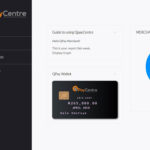Collecting your first salary is one of life’s major achievement and the beginning of a lifelong relationship with earning, saving and spending money.
Setting that relationship right from the beginning is the basis for good financial wellbeing, so employers have a golden opportunity to help young employees when they first join the workforce.
Unfortunately in Nigeria, HR of most companies (and even the government) feel they do not (and should not) have influence on how employees spend their salaries. Sadly, employees feel this same way too.
Here are some of the ways that employers can help support employees’ financial wellbeing right from the start:
Give Financial Education
Most young workers won’t have had any financial education at school. They may have learnt money habits and attitudes from their parents and other family members, or from their peers.
For some, that will be an inspiring first introduction to financial matters – but others may need to find ways to break away from repetitive patterns of debt and poor financial wellbeing.
Plus, the future for young employees today will be very different from that of their parents, and they’ll need support to think about their short, medium and long term financial goals in a changed world.
Offer access to appropriate financial products
It can be difficult for young workers to get approval for certain types of financial products that banks, insurance, investments firms and other FIs offer.
Offering access to these in the workplace means employees are not on their own when it comes to finding appropriate ways of saving and borrowing and that could also mean they have access to better forms of finance, should they need to borrow money.
Build a safety net through Employee Cooperative
Having savings to fall back on for unexpected expenses or shortfalls in earnings is a vital part of feeling in control of finances.
As younger employees become more independent, moving out of the family home and renting or buying independently, the need for a safety net becomes much more important. Even a small amount of money put away regularly will soon add up.
Automate savings
Saving money before you have the opportunity to spend it is the best way of building up a safety net and getting into good habits. This is one of the great benefit of employee cooperatives and HR.
Build a budgeting habit
Don’t let employees fall into the trap of thinking that budgeting only matters when money is tight. Good budgeting means that employees have a plan that will help them understand how much money they have day-to-day, to spend within their means, and save (no matter how little).
That puts an individual in control – and feeling in control of money is at the root of all financial wellbeing.







